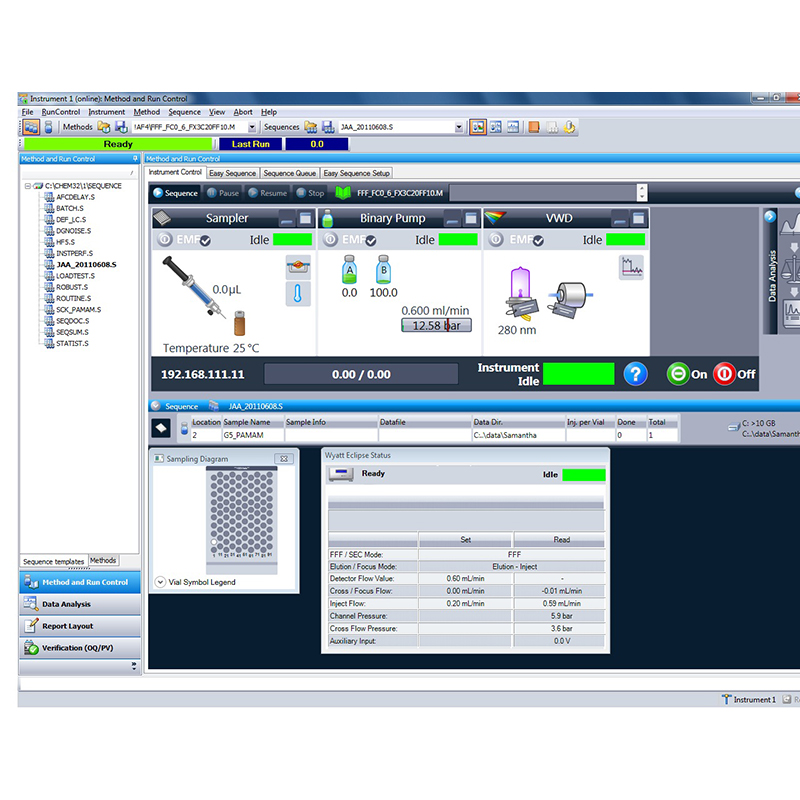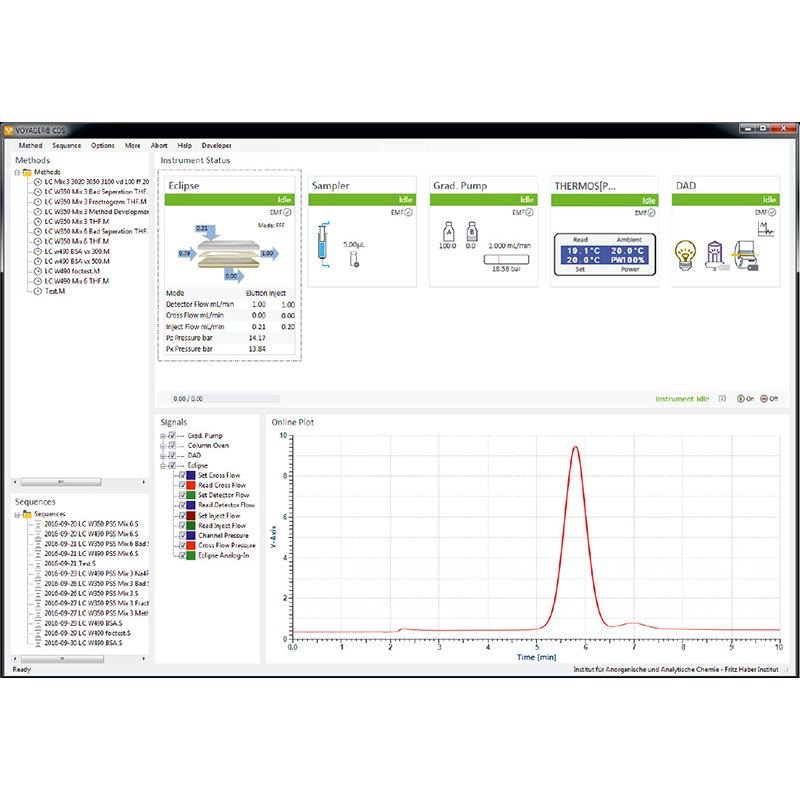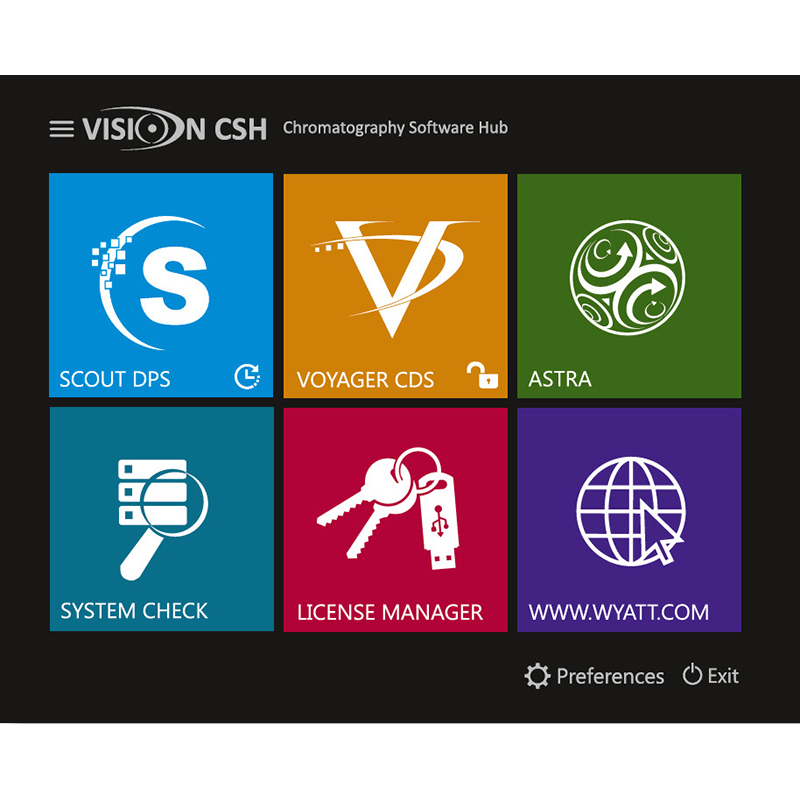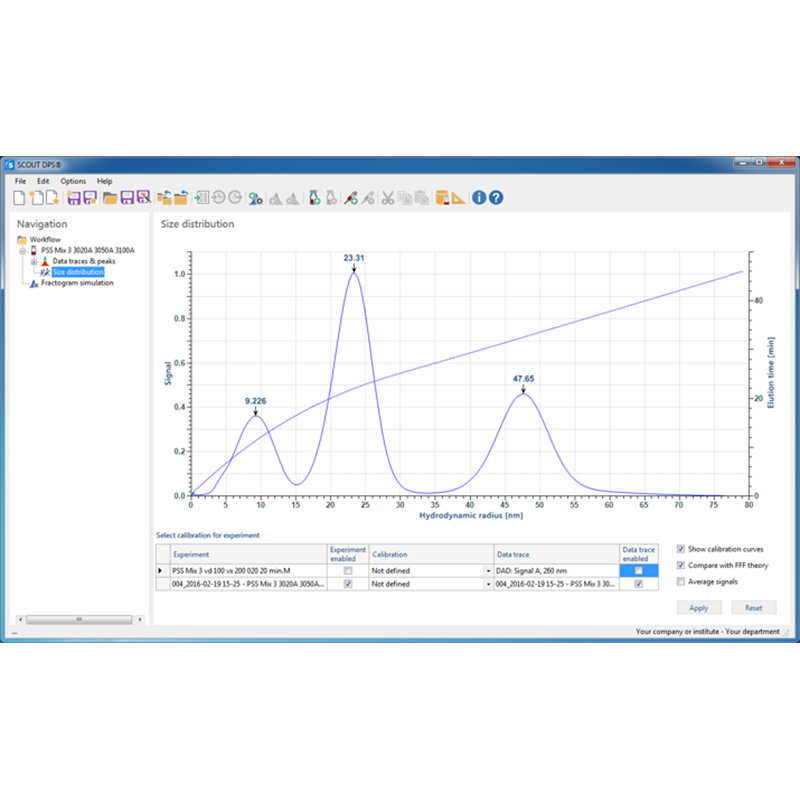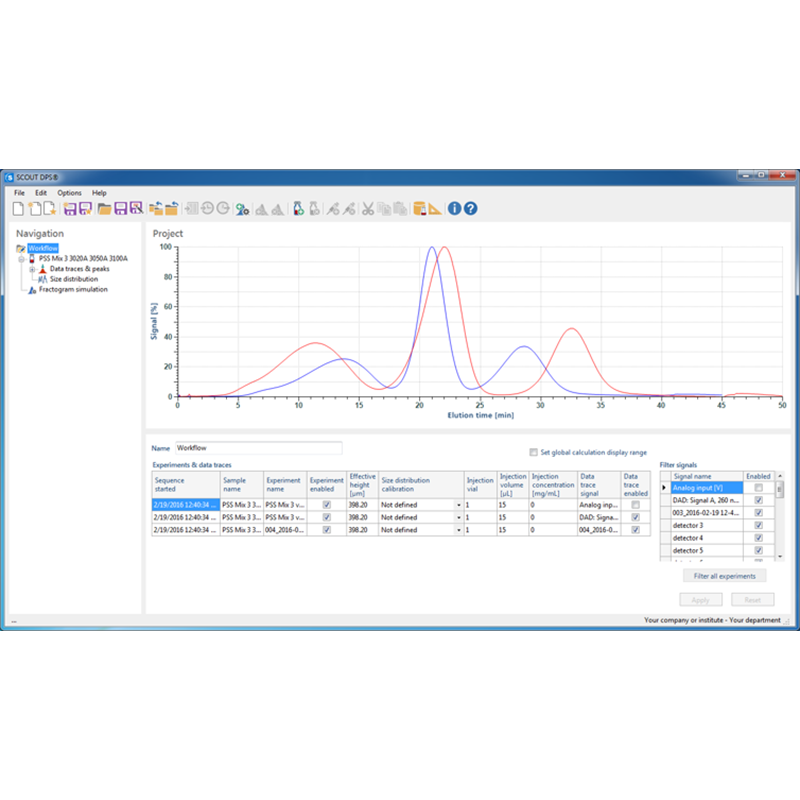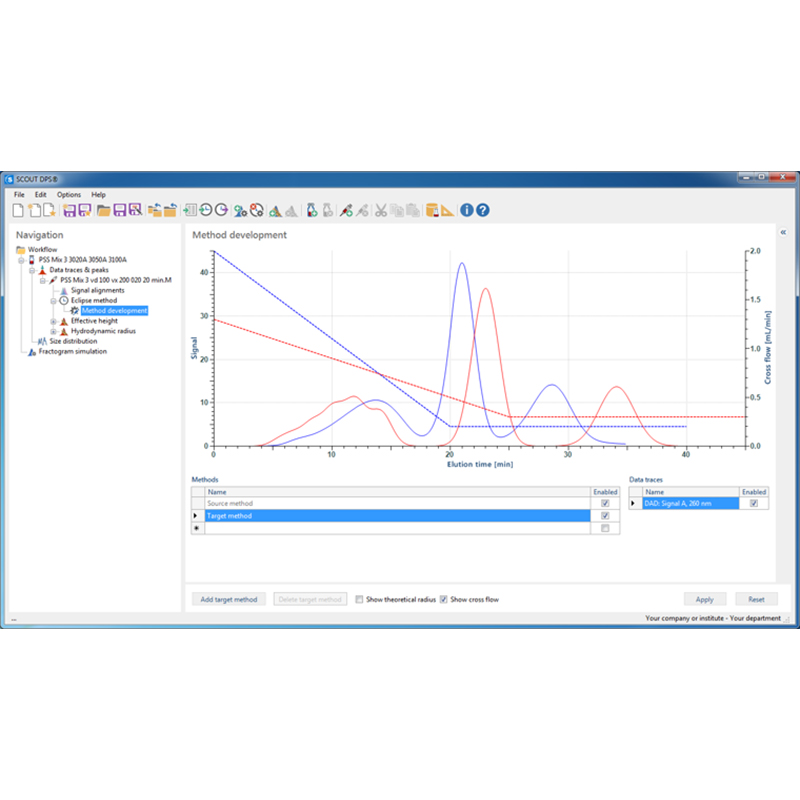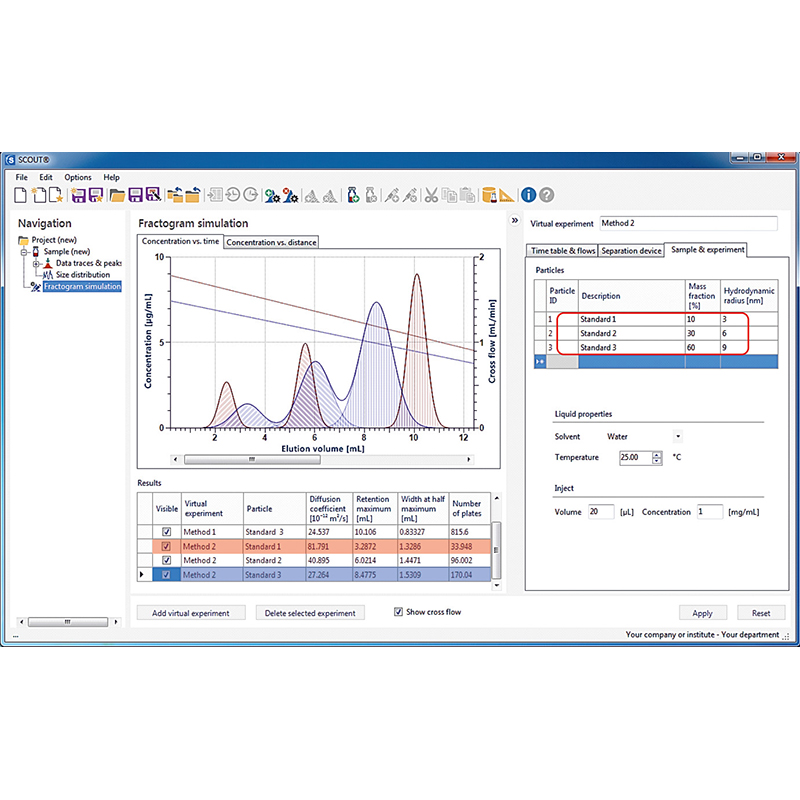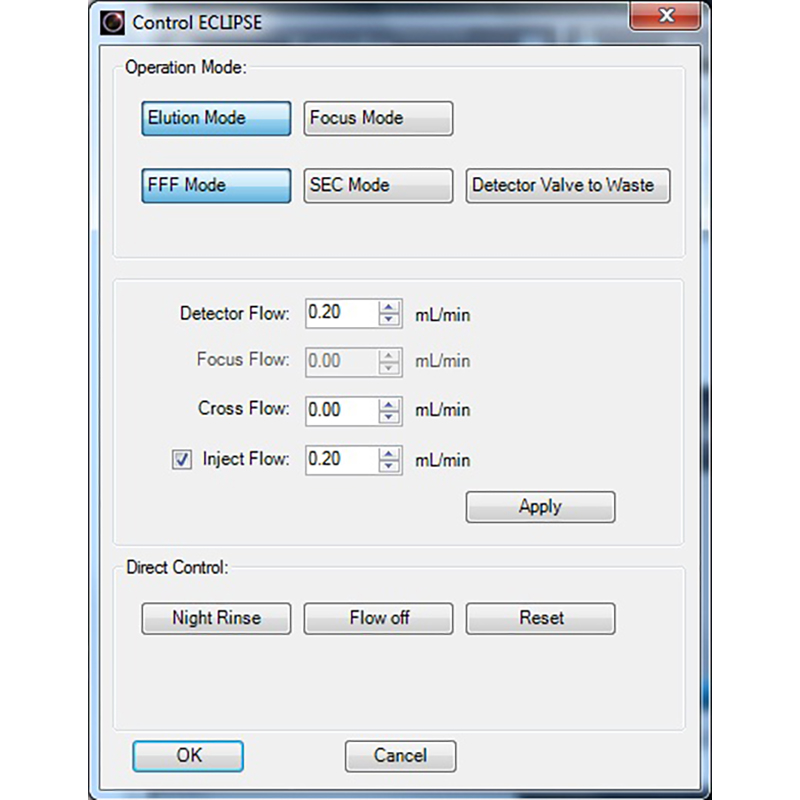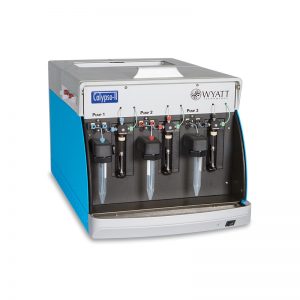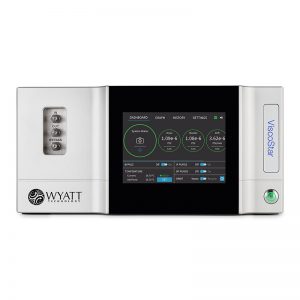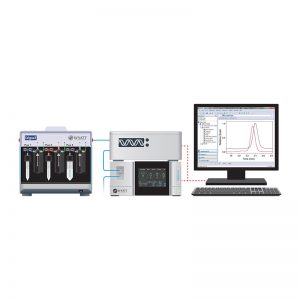Description
VISION CSH
VISION Chromatography Software Hub serves as FFF Central Station on your lab PC. Open VISION to launch any and all of the primary Wyatt software packages for FFF-MALS:
- SCOUT DPS: Combines simplified, rationalized FFF method development with FFF data analysis to determine distributions of hydrodynamic radii based on first-principles physics.
- VOYAGER CDS: Complete, integrated solution for FFF experimental runs. Instrument control and data acquisition for Eclipse and Agilent HPLC components.
- ASTRA: Wyatt’s flagship software for characterization of macromolecules and nanoparticles by SEC/FFF-MALS. Acquires, analyzes and reports measurements from multi-angle light scattering, dynamic light scattering, UV/Vis, dRI and differential viscometry detectors. Determines molar mass, size, concentration, intrinsic viscosity, conformation, shape, particle concentration (number density) and more.
SCOUT DPS
The flexibility of FFF allows users to achieve excellent separations for most applications, but in some cases finding the optimal method for the separation run can require tedious trial-and-error.
SCOUT DPS is an indispensable tool for FFF method development which utilizes in-silico, “virtual” experiments to eliminate most of the time and effort required for FFF method development.
Typical method optimization in SCOUT combines the results of one or two real FFF runs with an unlimited number of virtual FFF runs. A proprietary simulation algorithm quickly calculates the effect of changing parameters such as:
- Channel flow rate
- Cross-flow rate gradients
- Spacer height
- Membrane porosity
From virtual to physical
SCOUT makes use of first-principles FFF physics to simulate the separation process. The results are shown immediately, including the effect of band broadening and dilution of the sample at the channel outlet.
The example to the right shows the process for optimizing a nanoparticle separation.
- The blue experiment is the result of a default method for separating a sample containing three nanoparticle sizes. The dashed blue line shows the cross-flow gradient used, and the solid blue line is the measured concentration signal.
- The red experiment is the result of a series of simulations tested to improve the resolution. With a modified cross-flow gradient, the peaks are expected to exhibit baseline resolution.
The final measurement shows that the optimized method performed well, with enhanced separation between the three peaks.
Added value: Rh
An additional benefit of SCOUT is the analysis of fractograms to determine size distributions according to basic FFF physical theory.
This graph shows the size distributions determined for the nanoparticles in terms of hydrodynamic radius.
SCOUT DPS and the VOYAGER CDS software for performing FFF experiments exchange methods and data seamlessly.
VOYAGER CDS
VOYAGER CDS is a complete chromatography data system that incorporates everything you need for maximum productivity in FFF-MALS with an Eclipse and Agilent HPLC components:
- Eclipse: Complete control over all flows plus readings of pressures and flow rates
- Agilent® HPLC: Control and digital data acquisition from Agilent HPLC components including pumps, degassers, autosamplers, fraction collectors and detectors
- ASTRA control: Digital synchronization of multi-sample sequences with ASTRA
Extra benefits
VOYAGER CDS offers additional flexibility beyond OpenLab or ChemStation, such as storing all data files (Eclipse method, Agilent data, ASTRA) in one project folder.
A primary benefit is the ability to exchange files with SCOUT DPS:
- Read in FFF methods designed in SCOUT DPS
- Export HPLC detector data to SCOUT DPS for method feedback and size distribution analysis
ECLIPSE plug-ins
An ECLIPSE plug-in module controls the Eclipse DualTec and Eclipse AF4 Field-Flow Fractionation (FFF) systems. Coupled with ASTRA for data collection and analysis, an ECLIPSE plug-in provides users with a basic turn-key solution for macromolecular characterization.
ECLIPSE modules are available for these chromatography software packages:
- Agilent
- Dionex
- Shimadzu
Plug-ins benefits:
- Familiarity: The Eclipse instrument and the associated HPLC components are all operated from a single, familiar interface.
- Simple configuration: The Eclipse instrument is configured using the standard configuration dialog.
- Simple setup: Setup of all flow modes and flow rates is controlled by standard software menus within the HPLC software.

